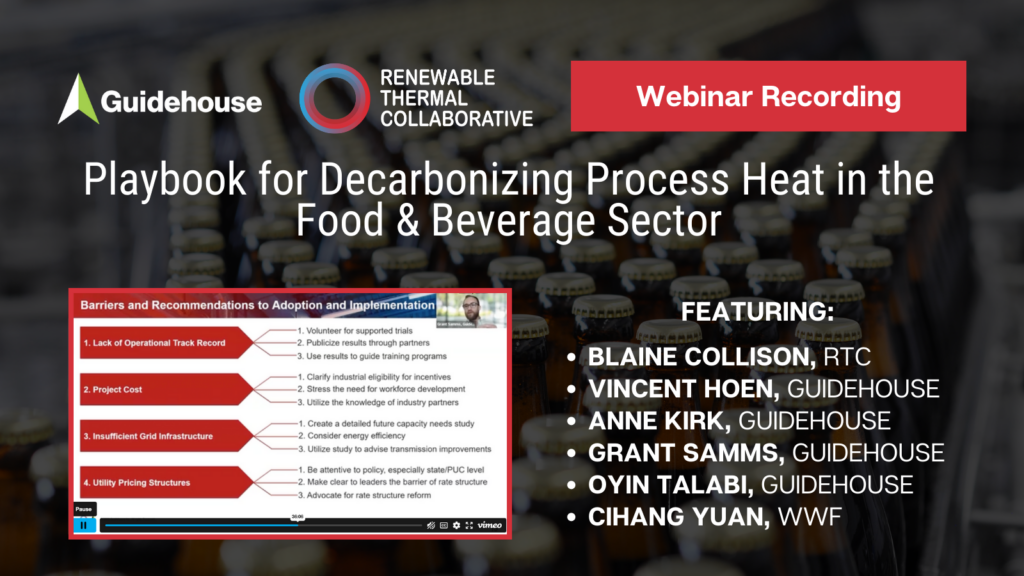
In the U.S., food and beverage processing and manufacturing produces more emissions from industrial heat use than any sector other than refineries, chemicals, or iron & steel. The low-temperature heat accounts for 97% of the thermal energy use in this sector, making electrification with heat pumps and electric boilers a promising opportunity for cutting emissions in the near-term.
To accelerate decarbonization in this critical sector, the World Wildlife Fund (WWF) and Guidehouse co-authored the Playbook for Decarbonizing Process Heat in the Food and Beverage Sector on behalf of the Renewable Thermal Collaborative (RTC). On August 8, the RTC hosted a webinar to release the Playbook, featuring presentations from its lead authors about their insights.
Speakers included:
- Blaine Collison, Executive Director, Renewable Thermal Collaborative
- Vincent Hoen., Director, Guidehouse Sustainability
- Anne Kirk, Project Manager, Guidehouse Sustainability
- Grant Samms, Research Analyst, Guidehouse Insights
- Oyin Talabi, Technial Analys, Americas and Asia, Guidehouse Sustainability
- Cihang Yuan, Program Officer, International Corporate Climate Partnership, World Wildlife Fund
The event outlined the findings of the playbook, outlining the major technology, market, and policy barriers to heat pump and electric boiler adoption, and explained our concrete, actionable recommendations for energy buyers and other stakeholders in the sector looking to deploy these technologies to decarbonize.
Fill out the form below to watch the webinar recording:

